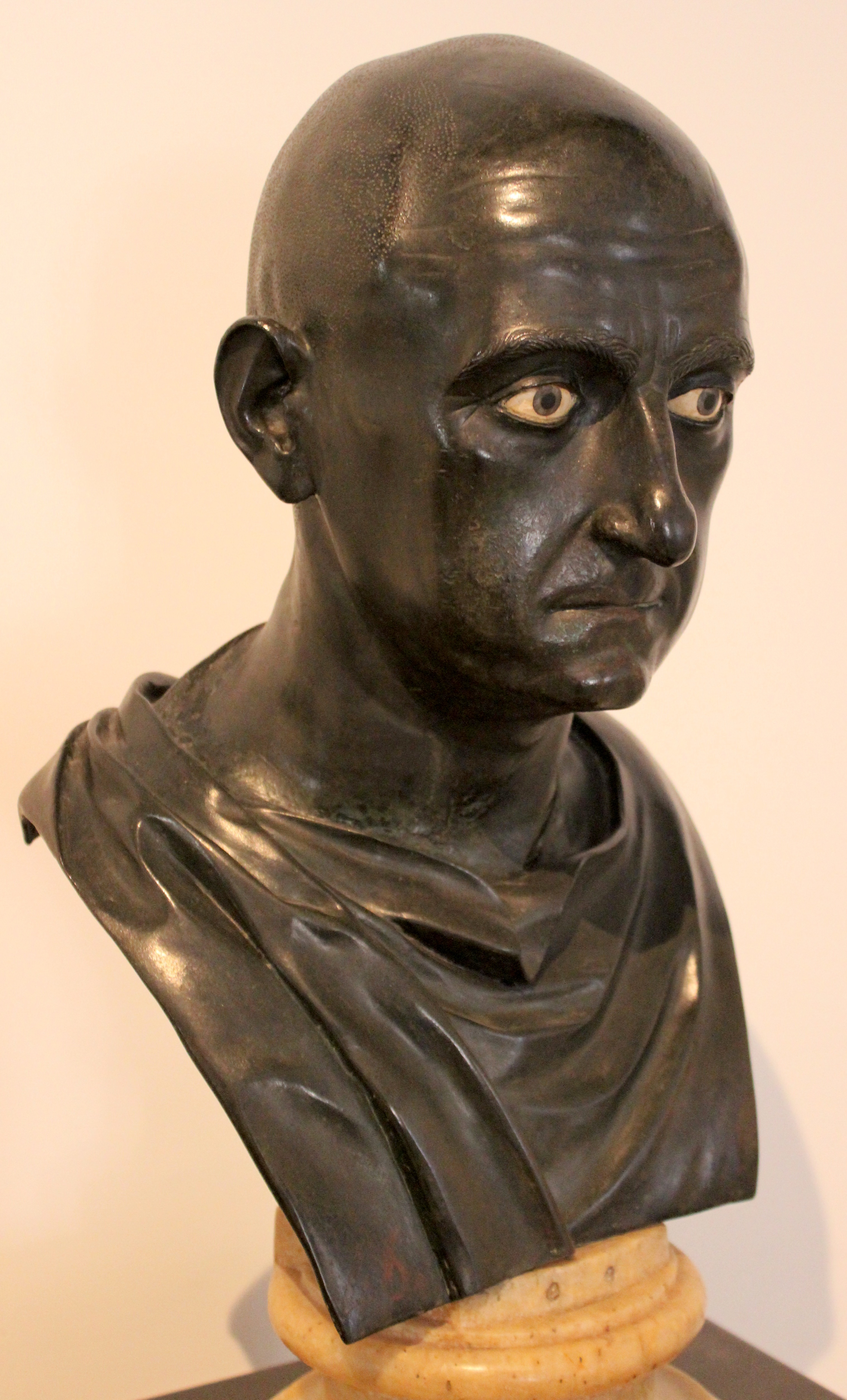“Ingrata patria, non avrai nemmeno le mie ossa.”
citato in Valerio Massimo, Factorum et dictorum memorabilium, V, III, 2b
Publio Cornelio Scipione Africano Maggiore è stato un politico e militare romano.
Patrizio appartenente alla Gens Cornelia, sconfisse Annibale vincendo la battaglia di Zama.

“Ingrata patria, non avrai nemmeno le mie ossa.”
citato in Valerio Massimo, Factorum et dictorum memorabilium, V, III, 2b
citato in Tito Livio, XXVIII, 27; 2010
Nunquam mihi defuturam orationem qua exercitum meum adloquerer credidi, non quo verba unquam potius quam res exercuerim, […] apud vos quemadmodum loquar nec consilium nec oratio suppeditat.
Attribuite
“Tutte le plebi, per natura come il mare immobili, sono agitate dai venti e dalle aure.”
citato in Tito Livio, XXVIII, 27; 2006
Multitudo omnis sicut natura maris per se immobilis est […] ventus et aurae cient.
Attribuite
“Possiede maggior determinazione colui che porta il suo attacco di chi lo subisce.”
citato in Tito Livio, XXVIII, 44; 1997
Plus animi est inferenti periculum quam propulsanti.
Attribuite
“Il terrore delle cose ignote è maggiore.”
citato in Tito Livio, XXVIII, 44; 2006
Maior ignotarum rerum est terror.
Attribuite
“Nessun delitto può trovare un motivo scusante.”
citato in Tito Livio, XXVIII, 28; 2006
Nullum scelus rationem habet.
Attribuite
citato in Tito Livio, XXX, 14; 2006
Non est, non tantum ab hostibus armatis aetati nostrae periculi, quantum ab circumfusis undique voluptatibus.
Attribuite
Contesto: I am mindful of human weakness, and I reflect upon the might of Fortune and know that everything that we do is exposed to a thousand chances. But, just as I should admit that I were acting with arrogance and violence if, before I had crossed over to Africa, I were to reject you when you were voluntarily withdrawing from Italy and, while your army was already on shipboard, you were coming in person to sue for peace, so now, when I have dragged you to Africa, resisting and shifting ground as we almost came to blows, I am under no obligation to respect you. Therefore, if to the terms upon which peace was formerly about to be made, as it seemed, you are adding some kind of compensation for the ships loaded with supplies that were taken by force during the armistice, and for violence done to my envoys, I have reason to bring it before the council. But if that addition also seems too severe, prepare for war, since you have been unable to endure a peace [bellum parate, quoniam pacem pati non potuistis].
Reply to Hannibal's attempt to set terms for peace, prior to the Battle of Zama, as quoted in Livy. Books XXVIII-XXX With An English Translation (1949), Book 30, Ch. 31 http://www.perseus.tufts.edu/hopper/text?doc=Perseus%3Atext%3A1999.02.0159%3Abook%3D30%3Achapter%3D31
Variant translation:
I am aware of the frailty of man, I think about the power of fortune, and I know that all our actions are at the mercy of a thousand vicissitudes. Now I admit that it would have been arrogant and headstrong reaction on my part if you had come to sue for peace before I crossed to Africa, and I had rejected your petition when you were yourself voluntarily quitting Italy, and had your troops embarked on your ships. But, as it is, I have forced you back to Africa, and you are reluctant and resisting almost to the point of fighting, so that I feel no need to show you any consideration. Accordingly, if something is actually added to the terms on which it seems probable that a peace could be concluded — some sort of indemnity for the forceful appropriation of our ships, along with their cargoes, during truce and for the violation of our envoys — then I have something to take to my council. But if you consider even that to be excessive, prepare for war, for you have found peace intolerable.
Hannibal's War : Books Twenty-one to Thirty by Livy, as translated by John Yardley (2006), p. 600
Prepare to fight — for, evidently, you have found peace intolerable.
Let us make war, since evidently, you have found peace intolerable.
“Thankless country, thou shalt not possess even my bones!”
Ingrata patria, ne ossa quidem mea habes.
Epitaph ordered by Scipio to be placed upon his tomb in Campania, as reported in Valerius Maximus Factorvm et dictorvm memorabilivm libri Novem, Lib. V http://www.thelatinlibrary.com/valmax5.html, cap. iii; translation from Familiar Short Sayings of Great Men (1887), p. 477
“I would rather save the life of one citizen than kill a thousand enemies.”
...malle se unum civem servare quam mille hostes occidere.
According to the Historia Augusta (fourth century), Roman emperor Antoninus Pius often repeated this saying of Scipio ("Antoninus Pius", 9.10); no earlier attribution to Scipio (or mention of the dictum itself, for that matter) is known.
Disputed